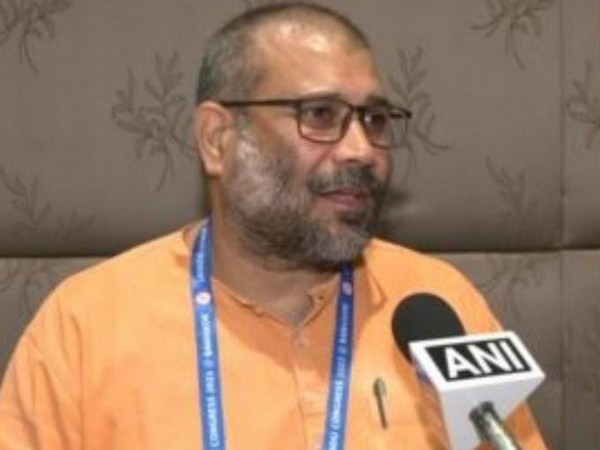In a gesture filled with cultural significance, Thailand is sending soil to the Ramjanmabhoomi ahead of the inauguration of the Ram Temple in Ayodhya.
This act follows the earlier gesture of sending water from two rivers in Thailand to Lord Ram’s temple. This unique connection aims to strengthen the cultural ties between Thailand and India, said Swami Vigyanananand, founder and global chairman of the World Hindu Foundation (WHF) in an exclusive conversation with ANI.
In preparation for the consecration ceremony of Ram Lalla on January 22, 2024, soil from Thailand is being sent to the sacred site of Ram Janmabhoomi. The initiative was taken by the Vishva Hindu Parishad (VHP) with Susheelkumar Saraff, President of the Thailand chapter of VHP, said Swami Vigyanananand.
The collaboration between the two nations is not limited to soil, Swami Vigyanananand said. He added, “India and Thailand have a strong cultural and historical bond. Kings belong to Lord Ram’s descendants. Every king here too has the title of Ram in their name which is an old tradition here, he said. Bangkok in Thailand is part of the Asian southeast country where rich Hindu cultural heritage exists that is why they planned to organise the World Hindu Congress here.
Swami Vigyanananand said, “We have identified 51 countries that will witness Lord Ram’s consecration at Ayodhya. Susheelkumar Saraff and I will be also be present in Ayodhya.”
Expressing his delight over the scheduled consecration of the Ram Temple in Ayodhya on January 22 next year, Swami Vigyanananand, chief organiser of World Hindu Congress, told ANI that the ceremony will be telecast live in Bangkok and Hindus from across the globe will converge at the event, engaging in kirtans, bhajans, puja, and recitation.
“We have ordered prasad (food offered to the deity) from Ayodhya. A replica of the Ayodhya temple has been built here. We have also brought an image of the birthplace of Ram Lalla from Ayodhya. Copies of the image will be shared with all the delegates (attending the conference). The festive ambience in Ayodhya ahead of the consecration of the Ram temple should be spread across the world,” he added.
A famous city in Thailand was known as Ayutthaya, where its kings bore the title of ‘Ramatibodhi’ (“Lord Rama”). Ayutthaya has been linked to the context in which Ayodhya is mentioned as the capital of Lord Rama in the Ramayana. Ayutthaya, which was the capital of the Siamese rulers from 1351 AD, was looted and almost completely destroyed by the Burmese forces in 1767.
The name of the Thai religious text is Ramkeen, which has the same status as the Thai Ramayana. Ramanujan, who wrote the book ‘300 Ramayana’, has compared this book with Valmiki Ramayana. It is believed to have been composed afresh by King Rama I in the 18th century and the main villain in this book, Thotsakan, is like Ravana of the Hindu text. The ideal of Ram is depicted in the hero of this book, Phra Ram. However, now the remains of Thai Ayodhya are spread over a large area and are a UNESCO World Heritage Site.
Dr Suresh Pal Giri has been teaching in Thailand for 22 years. In an exclusive interview with ANI, he said, “I teach in a religious university in Thailand. The land on which you are standing is a part of the missing link of India. For some years, it was called Thailand, it is genetically Hindu and later with time, elements of Buddhism kept coming into Hinduism and it got mixed.”
He said that even after so many years, Lord Ram is worshipped in Thailand as well as in India. He said, “The similarity between India’s Ayodhya and Thailand’s Ayodhya is that we have not forgotten our ancestors, our existence and our traditions. Even after so many years, we still believe in Lord Ram and worship him in Thailand as well as in India. The king here had also built some Hindu temples in this city. Here, 35 kilometres away from Ayutthaya, there is a temple of Lord Vishnu, Brahma and Shankar. The city has a 3,000-year-old Hindu temple dedicated to the kings of India.” (ANI)
For more details visit us: https://lokmarg.com/
